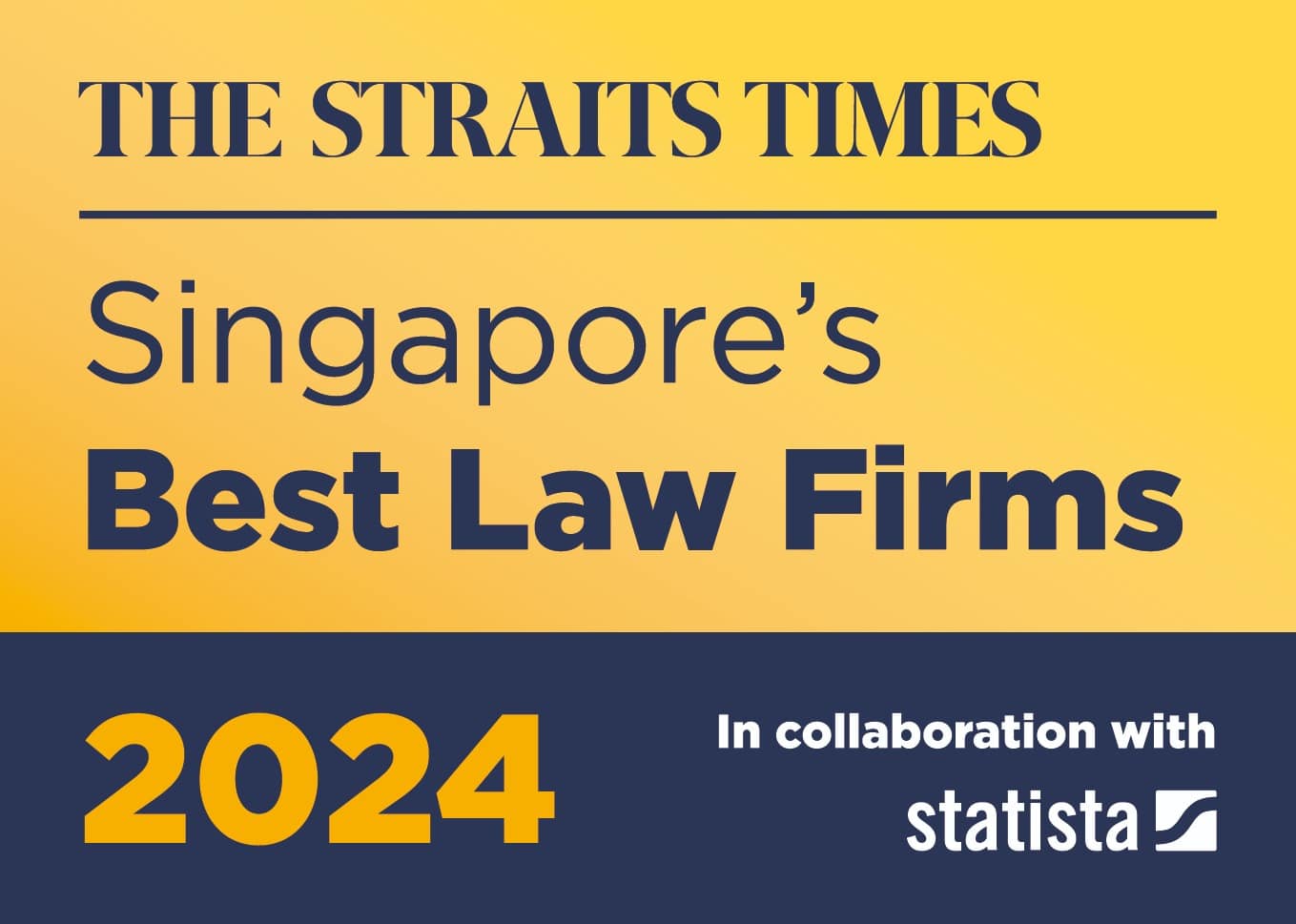Resolving Disputes: Civil Litigation Lawyers in Singapore
Introduction:
In Singapore, civil litigation encompasses a broad spectrum of legal disputes where one party is accused of non-criminal wrongdoing. Resolving these disputes involves compensation or injunctive measures. Whether it is a minor dispute or a complex civil suit, Understanding the civil litigation process and the advantages of hiring a specialist civil litigation lawyer is essential for favorable outcomes.
Issuing a Letter of Demand:
Before commencing formal legal proceedings, it is advisable to issue a letter of demand to the opposing party. This letter serves several purposes, including clearly stating the plaintiff’s demands, outlining the legal grounds for the claim, setting a compliance deadline, and notifying the potential initiation of legal action if non-compliance occurs. A well-drafted letter of demand can often lead to the resolution of disputes without resorting to costly and time-consuming litigation. It provides an opportunity for parties to engage in negotiations and reach a mutually agreeable settlement.
Here are the steps involved in issuing a letter of demand in Singapore:
Understand the Rights and Grounds: Gain a comprehensive understanding of the rights and legal grounds supporting the claim. Consult with a qualified civil litigation lawyer to ensure accuracy and strength in formulating the letter of demand.
Clearly Articulate the Demands: Clearly state the specific demands being made, such as compensation for damages, return of property, or cessation of certain actions. Support each demand with relevant facts and legal arguments.
Specify a Compliance Deadline: Include a reasonable compliance deadline to encourage timely resolution. Allow the opposing party sufficient time to respond and take appropriate action, while emphasizing the importance of prompt compliance.
Indicate Consequences of Non-Compliance: Clearly communicate the potential consequences of non-compliance, including the initiation of legal proceedings to protect rights and seek remedies.
Seek Professional Legal Assistance: Engage an experienced civil litigation lawyer, such as a member of our IRB Law team, to ensure a well-crafted letter that meets legal requirements and maximizes the chances of a favorable response.
Deliver the Letter of Demand: Use a registered postal service or engage a process server to deliver the letter, retaining proof of delivery.
Evaluate the Response: Assess the opposing party’s response within the specified deadline. They may comply, negotiate a settlement, or dispute the claims, determining the next steps in the litigation process.
Commencing a Civil Suit:
If the letter of demand is ignored or met with noncompliance, initiating a civil suit becomes necessary. This involves filing a writ of summons and a statement of claim with the appropriate court and serving these documents on the defendant. The choice of the court depends on the monetary value of the claim.
Understanding the jurisdictional thresholds is crucial:
Small Claims Tribunal: Claims under S$20,000 can be brought before the Small Claims Tribunal. This tribunal offers a simplified and expedited process, making it ideal for resolving smaller disputes in an efficient and cost-effective manner.
Magistrates’ Court: Claims between S$20,000 and S$60,000 fall within the jurisdiction of the Magistrates’ Court. This court handles a wide range of civil cases and employs streamlined procedures to ensure timely resolution.
District Court: Claims between S$60,000 and S$250,000 are heard in the District Court. This court has broader jurisdiction and deals with more complex cases that require greater attention to detail and legal expertise.
High Court: Claims exceeding S$250,000 fall under the purview of the High Court. The High Court handles high-value and complex disputes, offering a forum for cases that require meticulous preparation, sophisticated legal arguments, and extensive evidence.
Examples of Areas for Civil Litigation:
Civil litigation becomes necessary in various scenarios where individuals or entities seek legal remedies for non-criminal wrongs. Here are some examples of situations that often lead to civil litigation:
Personal Injury: When someone suffers harm or injury due to the negligence or intentional actions of another party, they may file a civil lawsuit seeking compensation for medical expenses, pain and suffering, and other damages.
Contract Disputes: When disputes arise over the terms, performance, or breach of a contract, parties may initiate civil litigation to enforce the contract, seek damages for losses incurred, or request specific performance of contractual obligations.
Property Disputes: Disagreements over real estate, such as boundary disputes, ownership claims, or breach of property agreements, can lead to civil litigation to establish legal rights, resolve conflicts, and seek appropriate remedies.
Employment Disputes: Issues related to employment contracts, wrongful termination, workplace discrimination, or harassment may necessitate civil litigation to protect employee rights, seek compensation, or enforce legal obligations.
Intellectual Property Infringement: When intellectual property rights, such as patents, copyrights, or trademarks, are infringed upon, civil litigation can be initiated to stop the infringement and seek damages or injunctive relief.
Professional Malpractice: If professionals, such as doctors, lawyers, accountants, or architects, provide services below the acceptable standard of care, resulting in harm or financial loss, civil litigation may be pursued to hold them accountable and seek compensation.
Defamation: False statements that harm a person’s reputation can lead to defamation claims and subsequent civil litigation, aiming to obtain damages for reputational harm and seek injunctions to stop further dissemination.
Product Liability: When injuries or damages occur due to defective or unsafe products, individuals may file civil lawsuits against manufacturers, distributors, or sellers to seek compensation for injuries, medical expenses, and other losses.
These are just a few examples illustrating the broad range of situations that necessitate civil litigation. In each case, seeking legal advice from a qualified civil litigation lawyer is crucial to assess the merits of the claim and determine the appropriate legal recourse.
Alternatives to Civil Litigation in Singapore:
While civil litigation is a common method for resolving disputes in Singapore, alternative approaches may provide a more efficient and cost-effective resolution.
Here are some notable methods of alternative dispute resolution available in Singapore:
Mediation: Mediation is a voluntary and confidential process in which a neutral third party— the mediator— facilitates communication and negotiation between the disputing parties. The mediator assists in identifying common interests, exploring options, and reaching a mutually acceptable agreement. Mediation offers flexibility, allows for creative solutions, and promotes a cooperative approach to dispute resolution. It can be particularly useful in preserving relationships and maintaining confidentiality.
Arbitration: Arbitration is a private and consensual process in which parties submit their dispute to one or more arbitrators who make a binding decision, known as an award. Unlike mediation, arbitration provides a decision that is enforceable by law. It offers flexibility in terms of selecting arbitrators with expertise in the specific subject matter of the dispute. Arbitration is often preferred for complex disputes involving technical or commercial issues.
Negotiation: Negotiation involves direct discussions between the parties with the aim of reaching a mutually acceptable resolution. It gives parties control over the outcome and can be conducted informally or with the assistance of legal representatives. Negotiation provides a flexible and collaborative approach to resolving disputes, and it is often the preferred method when parties seek to preserve relationships and maintain confidentiality.
Collaborative Law: Collaborative law is a voluntary process where both parties and their respective lawyers commit to resolving the dispute without resorting to litigation. The process involves face-to-face meetings and open communication to explore interests, identify common goals, and work towards a mutually beneficial outcome. Collaborative law focuses on problem-solving rather than adversarial positions and encourages a cooperative approach.
Dispute Resolution through Government Agencies: In Singapore, various government agencies offer alternative dispute resolution services for specific types of disputes. For example, the Singapore Mediation Centre (SMC) provides mediation services for commercial, civil, and family-related disputes. The Community Mediation Centre (CMC) specializes in mediating community disputes, while the Employment Claims Tribunal (ECT) offers a streamlined process for resolving employment-related disputes.
Choosing the appropriate alternative dispute resolution method depends on the nature of the dispute, the desired outcome, and the parties’ willingness to engage in the process. It is advisable to seek legal advice to assess the suitability of these alternatives and determine the best approach for your specific circumstances.
Seeking Legal Advice:
Deciding to pursue a lawsuit entails careful consideration and evaluation of various factors. Seeking legal advice from experienced litigation lawyers is essential in making informed decisions. These professionals can assess the strengths and weaknesses of your claim, provide strategic options for a successful outcome, estimate the potential costs involved, and evaluate the defendant’s assets to determine their ability to satisfy the claim. By obtaining comprehensive legal advice, you can better understand the merits of your case and make informed decisions regarding the best course of action.
Additionally, engaging the services of a specialist civil litigation lawyer significantly enhances your chances of achieving a favorable outcome. At IRB, our team of experienced civil litigators possesses in-depth knowledge and expertise in all aspects of civil law. We are well-versed in Singapore’s legal landscape, including relevant statutes, regulations, and case precedents. Our specialized knowledge enables us to provide tailored solutions and effective representation for your civil litigation matters.
Advantages of Hiring a Civil Litigation Lawyer
Legal Expertise: Specialist civil litigation lawyers possess a profound understanding of Singapore’s civil laws, court procedures, and legal precedents. Extensive knowledge of this field allows them to ensure that your case is approached with the necessary legal acumen and expertise.
Strategic Guidance: Drawing upon their experience in handling similar cases, civil litigation lawyers can provide strategic advice tailored to your unique situation. They analyze the strengths and weaknesses of your claim, formulate effective legal strategies, and provide a realistic assessment of the potential outcome. This strategic guidance can assist in making informed decisions and maximizing chances of success.
Effective Representation: Throughout the litigation process, a skilled civil litigation lawyer can effectively represent your interests. TTheir advocacy and attention to detail can assist in constructing a compelling argument, supporting your position and increasing the likelihood of a favorable judgment.
Procedural Compliance: Civil litigation involves intricate procedures and strict deadlines. A specialist lawyer ensures that all necessary documents are meticulously prepared and submitted within the required timeframes. This minimizes the risk of procedural pitfalls that could potentially derail your case.
Alternative Dispute Resolution: Specialist lawyers are proficient in alternative dispute resolution methods, such as mediation and arbitration. These approaches offer alternative avenues for resolving disputes outside of traditional litigation. By leveraging their expertise in these methods, civil litigation lawyers can explore the possibility of reaching a favorable settlement without the need for protracted court proceedings.
Frequently Asked Questions About Civil Litigation:
- What is civil litigation and how does it work in Singapore?
Civil litigation refers to the legal process for resolving non-criminal disputes through Singaporean courts, involving filing lawsuits and seeking remedies.
- How long does civil litigation typically take to resolve in Singapore?
The duration of civil litigation varies depending on factors such as case complexity, court availability, and the parties involved. It can range from months to several years.
- What are the steps involved in a civil litigation process in Singapore?
The typical steps include issuing a letter of demand, filing a writ of summons and statement of claim, serving documents on the defendant, exchange of evidence, pre-trial conferences, trial, and judgment.
- What types of disputes are commonly handled through civil litigation?
Civil litigation covers a wide range of disputes, including contract disputes, personal injury claims, property disputes, defamation cases, employment disputes, and family law matters.
- Can I represent myself in civil litigation proceedings in Singapore?
Yes, individuals have the right to represent themselves in civil litigation, but it is advisable to seek legal advice or engage a qualified civil litigation lawyer for the best outcome.
- What is the jurisdiction of different courts in Singapore for civil litigation cases?
The courts in Singapore include the Small Claims Tribunal (for claims up to S$20,000), Magistrates’ Court (S$20,000-60,000), District Court (S$60,000-250,000), and High Court (over S$250,000).
- What factors should I consider before filing a civil lawsuit in Singapore?
Factors to consider include the strength of your claim, potential costs, strategic options, the likelihood of success, and whether the defendant has sufficient assets to satisfy a judgment.
- What are the possible outcomes in civil litigation cases?
Possible outcomes include obtaining monetary compensation, injunctions, specific performance of contracts, declaratory judgments, or other remedies as determined by the court.
- Can I settle a civil dispute out of court in Singapore?
Yes, parties can engage in settlement negotiations or alternative dispute resolution methods like mediation to reach a mutually agreed resolution without going through a full trial.
- What is the difference between civil litigation and criminal litigation?
Civil litigation deals with disputes between individuals or entities seeking remedies or compensation, whereas criminal litigation involves prosecution by the state for alleged criminal offenses.
- Can I recover legal costs if I win my civil lawsuit in Singapore?
In general, the successful party may be awarded costs, but the court has discretion in determining the amount based on various factors and the conduct of the parties.
- Can I appeal a civil court decision in Singapore?
Yes, parties can generally appeal civil court decisions to higher courts in Singapore within specified time limits and based on grounds such as errors of law or procedural irregularities.
- Are there time limits for filing a civil lawsuit in Singapore?
Yes, civil claims are subject to time limitations known as the limitation period, typically six years from the date the cause of action arises, but specific claims may have different limitation periods.
- Can I enforce a foreign judgment in Singapore?
Yes, under certain conditions, foreign judgments can be enforced in Singapore through the courts, or under international conventions or reciprocal arrangements.
- What is the role of mediation in civil litigation in Singapore?
Mediation is a voluntary process where a neutral mediator helps parties negotiate and reach a settlement. It is actively encouraged by Singapore’s courts to resolve disputes amicably.
- Can I change lawyers during the course of civil litigation proceedings?
Yes, parties have the right to change lawyers if they are dissatisfied or if circumstances require a change. Proper procedures should be followed to ensure a smooth transition.
- What are the costs involved in civil litigation in Singapore?
Civil litigation costs may include court fees, legal fees, expert witness fees, and other expenses. It is advisable to discuss fees and obtain cost estimates from your lawyer.
- Can I recover damages for emotional distress in a civil lawsuit in Singapore?
In certain circumstances, damages for emotional distress may be awarded in civil litigation cases, especially in personal injury or defamation claims, subject to evidentiary requirements.
- Can I file a civil lawsuit against a government entity in Singapore?
Yes, it is possible to bring a civil lawsuit against a government entity in Singapore, but specific procedures and limitations may apply. Legal advice is recommended in such cases.
- Can I seek interim relief in civil litigation cases in Singapore?
Yes, parties can apply for interim relief, such as injunctions, to preserve rights or prevent harm pending the resolution of the main civil litigation case.
Glossary of Terms Relevant to Civil Litigation:
Civil Litigation: The legal process of resolving non-criminal disputes through court proceedings.
Letter of Demand: A formal notice sent to the opposing party, outlining demands, legal grounds, and compliance deadline before initiating legal proceedings.
Writ of Summons: A legal document issued to commence a civil lawsuit, notifying the defendant of the claim against them.
Statement of Claim: A document filed with the court that sets out the details of the plaintiff’s claim, including facts, legal basis, and relief sought.
Injunction: A court order that restrains a party from certain actions or requires specific actions to be taken during litigation.
Small Claims Tribunal: A specialized tribunal handling civil claims of lower value in an informal and expedited manner.
Magistrates’ Court: A court dealing with civil claims within a specific monetary range.
District Court: A court handling civil claims within a higher monetary range.
High Court: The highest court with jurisdiction over significant civil litigation matters.
Strengths and Weaknesses: Favorable and unfavorable aspects of a party’s case in terms of evidence, legal arguments, and potential outcomes.
Mediation: Voluntary dispute resolution facilitated by a neutral third party to reach a mutually acceptable agreement.
Arbitration: Private and binding dispute resolution where parties submit their case to an arbitrator who issues an enforceable decision.
Damages: Monetary compensation awarded by the court to compensate for losses suffered due to wrongdoing.
Pleadings: Written statements filed by parties outlining their claims, defenses, and legal arguments.
Discovery: The process of obtaining relevant information and evidence from each other for trial preparation
Standard of Proof: The degree of certainty required to establish a claim or defense in court.
Settlement: An agreement reached between parties to resolve a dispute without proceeding to trial.
Judgment: A court’s decision after considering evidence and legal arguments.
Appeals: The process of seeking a higher court’s review of a lower court’s decision.
Legal Costs: Expenses incurred in pursuing or defending a legal action.
Laws Relevant to Civil Suits, ADR, and Litigation in Singapore
In Singapore, civil suits, alternative dispute resolution (ADR), and litigation are governed by various laws and regulations. These laws provide a framework for resolving disputes and ensuring a fair and efficient legal process. Some key laws include:
- Civil Law Act (Chapter 43): The Civil Law Act is a foundational legislation that covers various aspects of civil law in Singapore. It provides provisions on contract law, tort law, property law, and general principles of civil liability.
- Rules of Court: The Rules of Court govern the practice and procedure in civil litigation proceedings in Singapore, outline the necessary steps, timelines, and requirements for initiating and conducting civil suits. This includes the filing of pleadings, discovery of documents, pre-trial conferences, and trial procedures.
- Arbitration Act (Chapter 10):The Arbitration Act governs the law of arbitration in Singapore. It provides a comprehensive legal framework for the conduct of arbitration proceedings, recognition and enforcement of arbitral awards, and the powers of the courts in relation to arbitration matters.
- Mediation Act (Chapter 49A): The Mediation Act promotes the use of mediation as a means of resolving disputes. It sets out provisions for the confidentiality of mediation proceedings, the enforceability of mediated settlements, and the powers of the courts to refer parties for mediation.
Recent amendments have been made to enhance access to justice, streamline procedures, and promote the use of ADR methods. Recent Amendments include:
- Introduction of the COVID-19 (Temporary Measures) Act 2020: In response to the COVID-19 pandemic, the Singapore government introduced temporary measures to provide relief and support to businesses and individuals.
- Enhanced Mediation-Arbitration Regime: Singapore has strengthened its position as a leading arbitration and mediation hub by introducing enhancements to its mediation-arbitration regime. The Singapore Convention on Mediation, established in 2020, promotes the enforceability of international mediated settlement agreements. This development further supports the use of mediation as an effective ADR method.
- Amendments to the Civil Justice Act: The Civil Justice Act underwent amendments to enhance the efficiency and accessibility of civil justice. These amendments introduced measures such as electronic filing of court documents, digital case management systems, and expedited trial procedures for suitable cases, aiming to expedite the resolution of civil disputes.
- Introduction of the Small Claims Tribunals (Amendment) Act: The Small Claims Tribunals (Amendment) Act introduced changes to the jurisdiction and procedures of the Small Claims Tribunals. The amendments raised the claim limit to S$20,000, expanded the types of claims heard by the tribunals, and streamlined the process to provide a more accessible and efficient avenue for resolving small-scale disputes.
Conclusion
Successfully navigating the complexities of civil litigation in Singapore requires careful deliberation, sound legal advice, and effective representation. By engaging the services of a specialist civil litigation lawyer, you substantially enhance your chances of a favorable outcome. Remember to issue a letter of demand before commencing legal proceedings and be aware of the appropriate court for your claim based on its monetary value. Contact our experienced team at IRB Law to discuss your unique situation and obtain the necessary guidance for your civil litigation matter. We are here to support you through every step of the process and ensure that your rights are protected.
Author: Mohamed Baiross/IRB LAW LLP


Areas including
- Contract disputes
- Negligence claims
- Fraud
- Libel and slander
- Sale of goods
- Injunctions
- Property disputes
- Landlord and tenant disputes
Why choose us?
Integrity
We are committed to resolving
your matter quickly and without
incurring unnecessary costs.
Experienced Professionals
We offer more than the typical
incorporation companies. We
are also a full service law firm
with 20 full time lawyers.
Transparent, Affordable Fees
We believe legal services should
be affordable to all. We offer
transparent, affordable, and
fixed free pricing.
Some of Our Civil Litigation Team at IRB
Mohamed Baiross
Founding Partner
Baiross is the managing partner of IRB Law LLP. He is an experienced lawyer with an excellent reputation across a broad selection of practice areas including divorce, insolvency, crime, probate, syariah, and civil litigation.
Kulvinder Kaur
Partner
Kulvinder’s practice focuses on civil and commercial litigation, and matrimonial affairs. She has successfully obtained sole custody and highly favorable access arrangements for her clients (both mothers and fathers).



